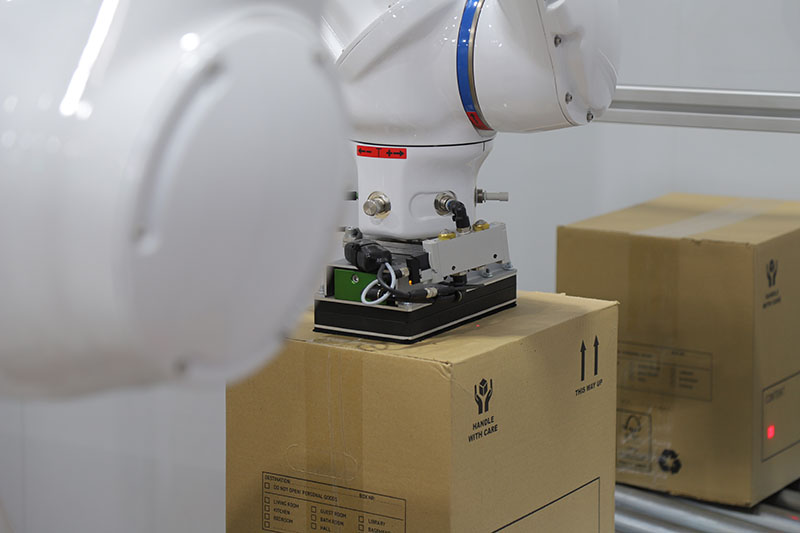
The pet food industry is one of the fastest-growing and most competitive markets today, fueled by a surge in pet ownership and an increasing demand for premium, convenient products. To keep pace with this growth, manufacturers must optimise every aspect of their operations, particularly in packaging and logistics. One critical element in this process is palletising—stacking products onto pallets for efficient storage and shipment. The right palletiser can make a substantial difference, directly impacting productivity, cost-efficiency, and product safety. In this article, we’ll delve into the key factors to consider when selecting a palletiser for the pet food industry and explore the various options available to meet these specific needs.
Key Considerations for Palletisers in the Pet Food Industry
- Product Variability and Packaging Types
The pet food industry deals with a wide range of packaging formats, from heavy bags and sacks to delicate cans, pouches, and cartons. Each of these packaging types has distinct handling requirements:- Bags and sacks: These are often bulky and heavy, demanding a palletiser that can handle the weight with care to prevent damage.
- Cans and pouches: These need precise stacking to avoid crushing and maintain stability throughout the supply chain.
- Cartons: These typically require high-speed handling without compromising the structural integrity of the packaging.
- Speed and Throughput Requirements
In a high-demand market like pet food, manufacturers often operate large-scale, high-speed production lines. The palletiser must keep pace, handling large volumes quickly and efficiently, without creating bottlenecks. This includes the ability to process multiple product lines simultaneously, ensuring that production output meets market demand. - Flexibility and Adaptability
The pet food market is continually evolving, with new product sizes, packaging types, and pallet configurations frequently introduced. A palletiser with the capability for quick changeovers and easy programming is invaluable, offering manufacturers the agility to adapt to changing production requirements without losing efficiency. - Footprint and Space Constraints
Manufacturing facilities are often packed with various pieces of equipment, making space a critical consideration. The ideal palletiser should have a compact footprint, or be designed for integration into existing layouts without necessitating extensive reconfigurations. This not only maximises available space but also minimises disruption to production. - Cost and ROI
Investing in a palletiser is a significant financial commitment. It’s essential to consider the total cost of ownership, which includes not just the purchase price, but also ongoing maintenance, energy consumption, and operational efficiency. A well-chosen palletiser should offer a strong balance between upfront cost and long-term performance, delivering a reasonable return on investment (ROI) while boosting overall productivity.
Types of Palletisers for the Pet Food Industry
Understanding the different types of palletiser available is crucial, as each type offers unique strengths and applications. Here’s an overview of the leading types of palletisers that cater to the specific needs of this industry:
- Modular Robotic Palletisers
Modular robotic palletisers are known for their high flexibility and efficiency, whilst their easy programming software ensures quick setup and adaptability. These systems use robotic arms to pick and place products onto pallets with precision. They are ideal for handling a variety of packaging types, including heavy bags, cans, and cartons, commonly used in the pet food industry. Their modular design allows easy adaptation to different production setups, and their compact footprint makes them suitable for facilities with limited space. These palletisers are capable of high-speed operation and can be programmed to manage multiple product lines, making them versatile for various palletising needs. - Compact Robotic Palletiser
The compact palletiser system is an ideal solution for the pet food industry, particularly in environments where space is at a premium and efficient pallet handling is essential. Its compact design, combined with a robust 120kg payload robot, allows it to handle a variety of packaging types with ease. The system’s low-profile conveyors and pallet truck take-off feature enable seamless integration into tight spaces, while the easy programming software ensures quick setup and adaptability. With options for different grippers, row gripping, and the inclusion of slipsheets and auto pallet feeding, this system provides high-speed, efficient palletising that maximises productivity without sacrificing valuable floor space. - Cobot Palletiser
The cobot palletising system is particularly well-suited for the pet food industry, offering a versatile and safe solution for lightweight palletising tasks. Its advanced 30kg payload collaborative robot can operate in both collaborative mode, working safely alongside human workers, and in industrial robot mode, maximising speed and efficiency when the area is secured. This dual functionality ensures that the system can adapt to different production needs while maintaining high safety standards. With its easy programming, robust design for 24/7 use, and quick installation, the cobot palletiser enhances productivity while providing the flexibility needed in a dynamic manufacturing environment.
Each type of palletiser offers specific advantages and is suited to different operational needs within the pet food industry. The choice of palletiser will depend on factors such as the type of packaging, production speed requirements, available space, and the level of automation desired.
Conclusion
In summary, choosing the right palletiser for the pet food industry is not just about handling products—it’s about ensuring that every aspect of production and logistics operates smoothly and efficiently. From handling a variety of packaging types to meeting high-speed demands and maintaining hygiene, the ideal palletiser is a cornerstone of a successful pet food manufacturing operation.
If you would like to know more about the Granta palletising systems, then please do get in touch on 01223 499488 or contact us at helpline@granta-automation.co.uk. We will be very happy to help.


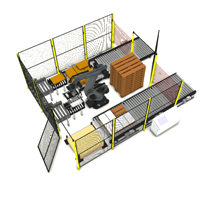
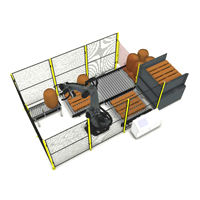
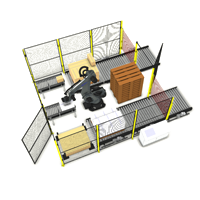
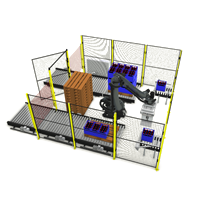
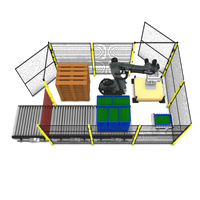

Warning: Undefined variable $aria_req in /var/www/granta-automation.co.uk/news/wp-content/themes/twentyten/comments.php on line 81
Warning: Undefined variable $aria_req in /var/www/granta-automation.co.uk/news/wp-content/themes/twentyten/comments.php on line 86